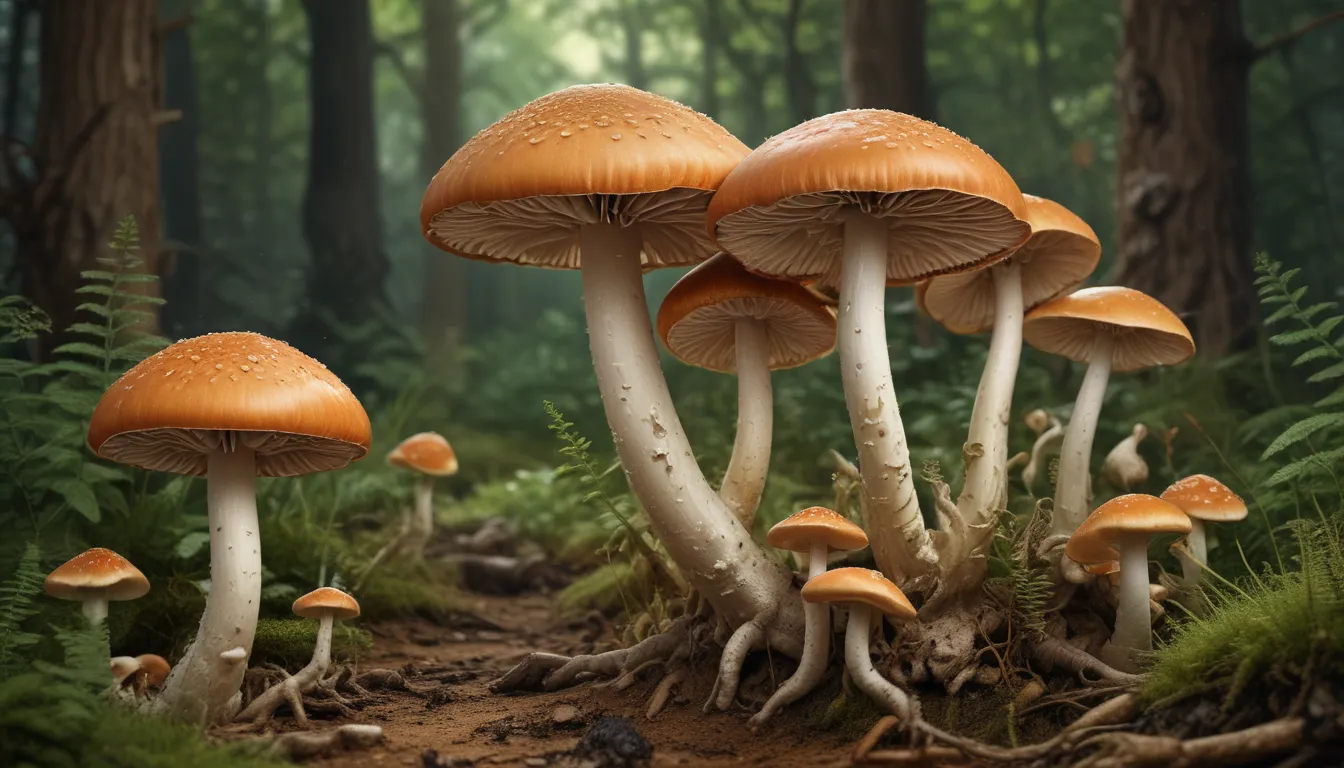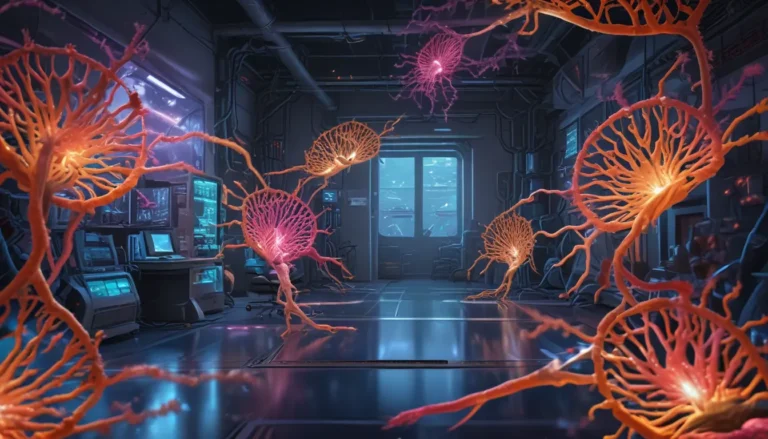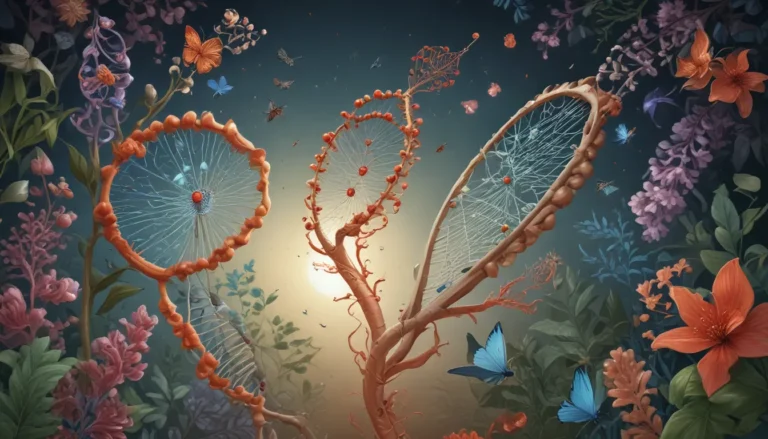A Note About Images: The images used in our articles are for illustration purposes only and may not exactly match the content. They are meant to engage readers, but the text should be relied upon for accurate information.
Are you ready to embark on a journey into the captivating world of fungi biology? From their vital ecological roles to their potential in medicine and beyond, fungi are a diverse and intriguing group of organisms that deserve our admiration and study. In this article, we will delve into 11 fascinating facts about the biology of fungi that will enrich your understanding and spark your curiosity. Let’s unravel the mysteries that lie beneath the mesmerizing exteriors of these enigmatic organisms.
Discovering the Unique Kingdom of Fungi
Contrary to popular belief, fungi are not plants or animals but belong to their own distinct kingdom known as “Fungi.” With unique characteristics that set them apart from other organisms, fungi are a diverse group that encompasses a wide range of shapes, sizes, and ecological functions.
Exploring the Rich Diversity of Fungi
Scientists have identified over 144,000 species of fungi, ranging from mushrooms to molds and yeasts. Despite this vast number, there are still many undiscovered species waiting to be classified, showcasing the immense diversity within the fungal kingdom.
Illuminating the Role of Fungi in Decomposition
One of the critical roles of fungi in ecosystems is their ability to break down organic matter through the release of enzymes. By decomposing complex molecules, fungi play a crucial role in recycling nutrients back into the environment, highlighting their importance in nutrient cycling.
Unraveling the Symbiotic Relationships of Fungi
Fungi form symbiotic relationships with a variety of organisms, including plants and animals. For example, mycorrhizal fungi establish mutually beneficial partnerships with plant roots, aiding in nutrient absorption for plants while receiving sugars in return.
Harnessing the Medicinal Potential of Fungi
Certain fungi species contain bioactive compounds with medicinal properties, such as the antibiotic penicillin derived from the Penicillium fungus. These compounds have been instrumental in fighting bacterial infections and have contributed significantly to the field of medicine.
Empowering Environmental Restoration with Fungi
Fungi possess the remarkable ability to detoxify pollutants through bioremediation processes. By breaking down and neutralizing contaminants in soil and water, fungi play a valuable role in environmental restoration efforts, showcasing their potential as eco-friendly agents.
Illuminating the Hidden World of Fungal Networks
Beyond the visible fruiting bodies like mushrooms, fungi create vast underground networks known as mycelium. These interconnected filaments facilitate nutrient exchange between plants and trees over great distances, underscoring the essential role of fungi in nutrient cycling.
Embracing the Bioluminescent Beauty of Fungi
Some fungi exhibit bioluminescence, producing light as a natural phenomenon. This enchanting ability can be observed in certain mushroom species and serves various functions, including attracting insects for spore dispersal, adding a touch of magic to the fungal world.
Celebrating the Culinary and Beverage Contributions of Fungi
For centuries, fungi have been instrumental in the production of various foods and beverages. Yeast, a type of fungus, plays a crucial role in the fermentation process of bread, beer, and wine, imparting distinctive flavors and textures to these culinary delights.
Unveiling the Therapeutic Potential of Fungi in Medicine
Scientists are actively exploring the medicinal potential of fungi for drug discovery and the development of new medicines. With a diverse range of bioactive compounds, fungi offer promising opportunities for treating diseases and advancing medical applications.
Reflecting on the Marvels of Fungi Biology
In conclusion, the field of fungi biology offers a treasure trove of captivating facts and discoveries. From their intricate relationships in ecosystems to their transformative potential in various fields, fungi are remarkable organisms that warrant further exploration and appreciation. By understanding the diverse forms and extraordinary abilities of fungi, we can drive innovation and progress in areas such as medicine, agriculture, and environmental conservation.
FAQs: Unveiling More Insights
What is fungi biology?
Fungi biology is the scientific study of fungi, a distinct kingdom of organisms with unique characteristics and ecological roles.
How do fungi obtain nutrients?
Fungi absorb nutrients through their mycelium, breaking down organic matter with enzymes and absorbing the resulting small molecules.
Are all fungi harmful or poisonous?
While some fungi produce toxic compounds, many fungi are beneficial or neutral, playing critical roles in ecosystems and producing useful compounds.
Can fungi be used in medicine?
Yes, fungi have been utilized in medicine for centuries, providing important antibiotics and contributing to drug development.
Do fungi have ecological importance?
Absolutely, fungi are key players in nutrient cycling and decomposition, essential for ecosystem health and vitality.
Can fungi be found in extreme environments?
Yes, fungi are highly adaptable and can thrive in a range of environments, including extreme conditions like high temperatures and low pH.
Are all fungi visible to the naked eye?
No, while some fungi form visible fruiting bodies, many fungi are microscopic, existing as intricate networks of filaments.
Can fungi be used in bioremediation?
Yes, certain fungi are effective in bioremediation processes, breaking down pollutants and restoring contaminated environments.
Are all fungi harmful to crops?
No, while some fungal pathogens can be harmful, beneficial fungi form symbiotic relationships with plants, enhancing their growth and resilience.
Are humans affected by fungal infections?
Yes, humans can experience a variety of fungal infections, ranging from common skin conditions to serious systemic illnesses.
Can fungi be used in the production of food?
Absolutely, fungi have been integral to the production of diverse foods and beverages, enriching culinary traditions worldwide.
Reflecting on Our Commitment to Authentic Content
Our dedication to delivering reliable and engaging content is the cornerstone of our mission. Each fact on our platform is contributed by real users, ensuring a diverse range of insights and information. Our team of editors meticulously reviews each submission to guarantee accuracy and credibility, fostering trust in the quality and authenticity of the facts we share. Join us on a journey of exploration and learning as we continue to unveil the wonders of the natural world together.





